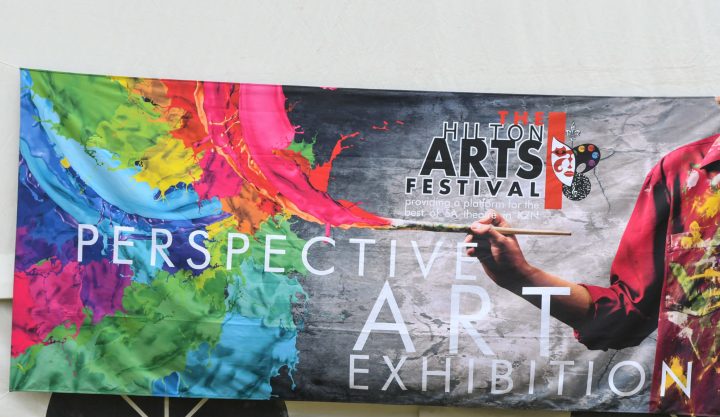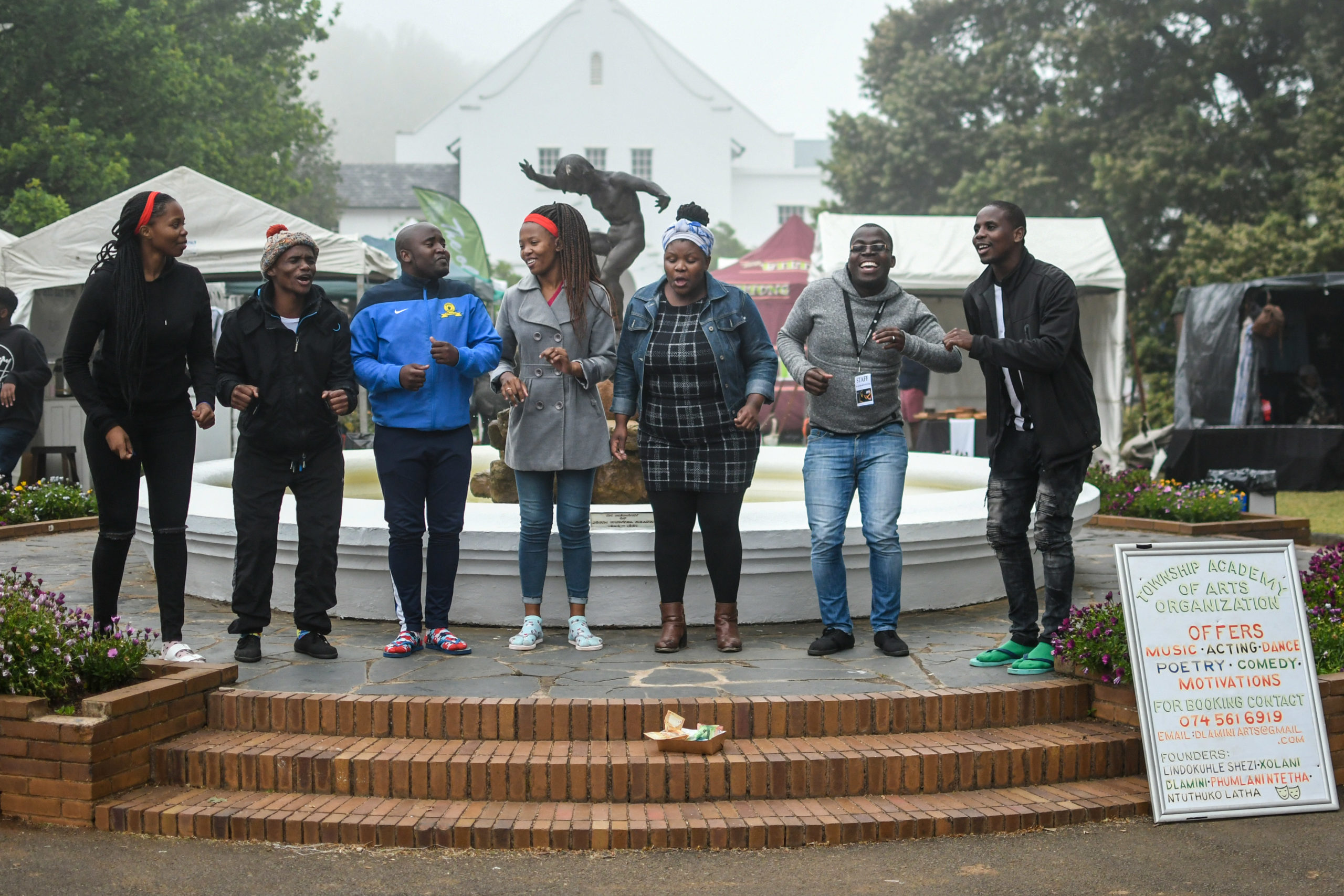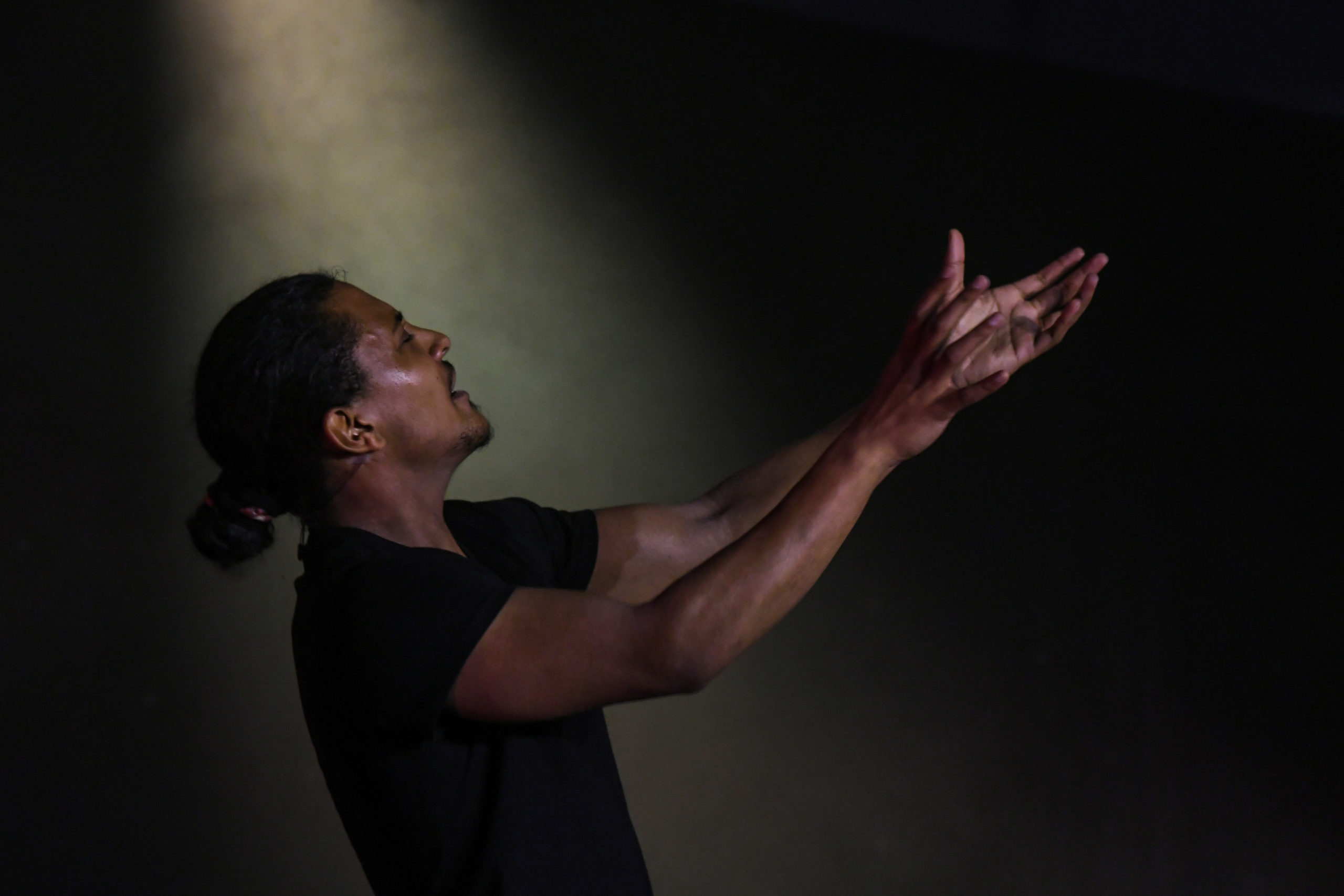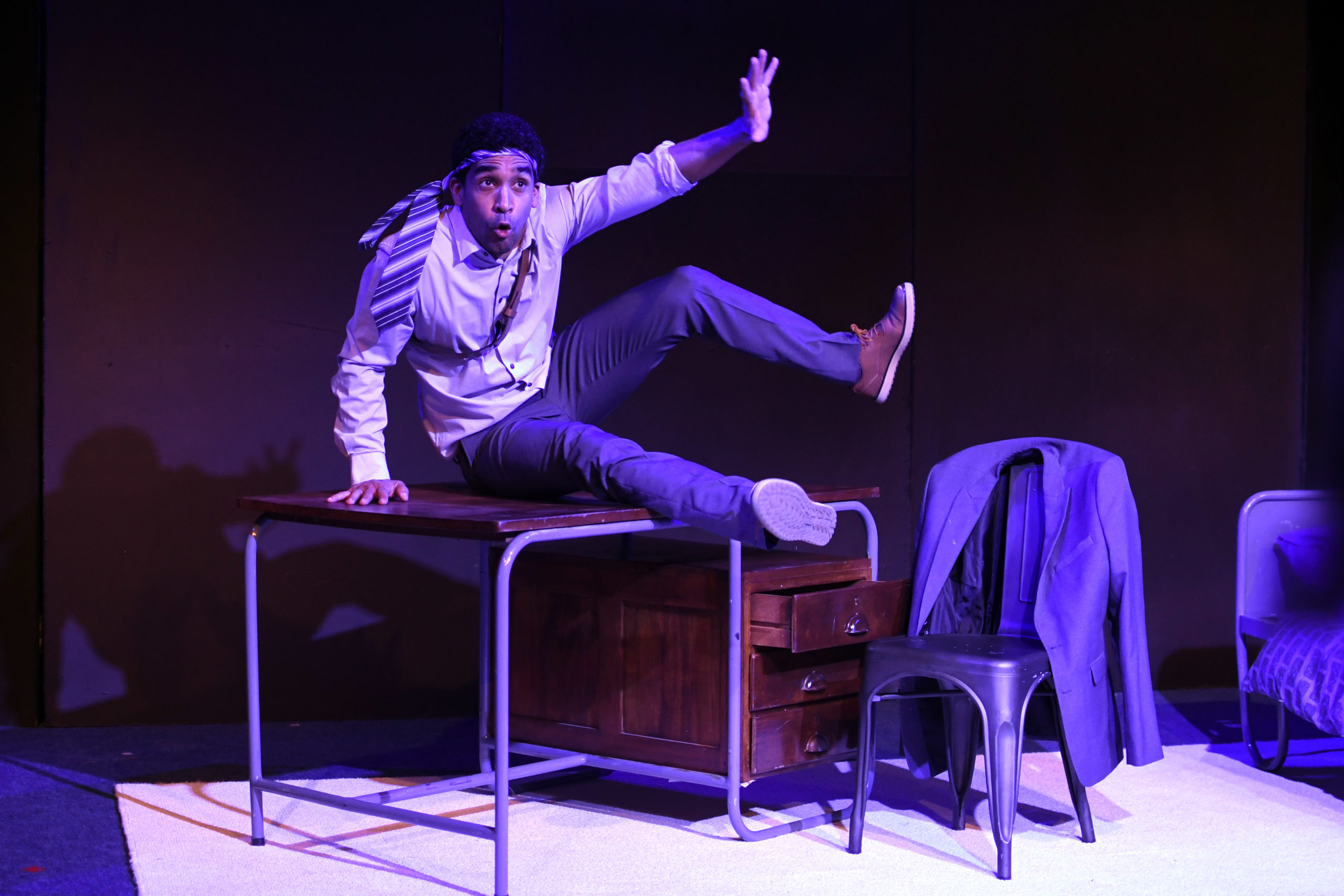MATTERS OF OBSESSION
Help keep the spotlights burning: The show must go on for the embattled Hilton Arts Festival

The Hilton Arts Festival is calling on South Africans to help them survive the aftereffects of a pandemic that has been brutal to all, including those in the art world.
Earlier this year, Sue Clarence, founder of the Hilton Arts Festival (HAF), received an email from a teacher at Reddam House Umlanga, a school located just outside Durban. The email said the students at Reddam had heard about the fundraiser HAF was holding and wanted to contribute.
“These kids want to write their own play and perform it at their school,” Clarence explained, “and all the ticket money that they get, they’re going to give to us.”
The students at Reddam, regular attendants of HAF, are more than aware of the special nature of the event. “These kids are already championing the theatre. Nobody needs to teach them that.” Perhaps there are a few lessons to learn from the innovation and passion of the Reddam students.
The HAF is a central part of the South African art world. As legendary South African playwright John Kani puts it, “For nearly 30 years, the Hilton Arts festival has brought joy to thousands of art lovers and theatregoers.”
The pandemic has devastated the arts sector around the world, and HAF is struggling to scrape together the funds it needs to stay afloat. The unfortunate reality is that the lack of support arts and culture receives from the South African government means that Sue Clarence and the rest of the HAF team have no choice but to appeal to the public for help.

Township academy of arts during the Hilton Arts Festival 2019 at Hilton College Theatre on September 14, 2019 in Pietermaritzburg, South Africa. (Photo by Gallo Images/Darren Stewart)
What is the Hilton Arts Festival?
The event, one of only two English-speaking festivals that takes place in South Africa on an annual basis (the other being the National Arts Festival in Grahamstown), is an essential component of the nation’s cultural fabric.
Run by a nonprofit organisation called the Arts Trust of South Africa and generously hosted by Hilton College, the boarding school’s grand architecture and expansive grounds provide a fitting backdrop to a weekend of total immersion in the cream of South African theatre, music, contemporary arts and crafts.
“Our major sponsor has always been Hilton College itself,” Clarence made clear. “I do not pay rent. The school doesn’t own the festival and they don’t benefit from it. Without them, I couldn’t have done it.”
The year of HAF’s genesis was 1993, just six months before the first democratic elections in South Africa. Something fresh, exciting and new was happening, and HAF was there to display it all: the trauma, the fear, the community, and, most importantly, the hope reflected in South African art of the time.
In the beginning, Clarence invited just six productions, each one to be performed twice. Almost immediately, every seat was sold, and “that set the precedent for the next 30 years”.
The festival has grown exponentially. The last festival, which took place in 2019 after a pandemic-induced pause in 2020, boasted 255 scheduled events, 25,000 attendees, 107 visual artists and 132 crafts vendors.
With luck and help from the community, the Hilton Arts Festival could be back again, this time from 15 to 19 September (in compliance with Covid-19 protocols, of course.)

Cellist with Rabies during the Hilton Arts Festival 2019 at Hilton College Theatre on September 14, 2019 in Pietermaritzburg, South Africa. The festival, which largest theatrical event of its kind in KwaZulu-Natal, aims to bring the pick of South Africa’s high quality performing art to the province. The festival also includes art exhibitions, quality craft, food and drink, live music. (Photo by Gallo Images/Darren Stewart)
Why is HAF special?
Supporting, respecting and cultivating South African arts and artists is at the heart of the festival’s mission, a sentiment that is reflected in the financial structure of the event.
Clarence explains: “The reason we managed to attract the pick of South African theatre is that we offer a fee so that nobody comes on risk. I negotiate with either a production house or an individual artist, and say, ‘I want to buy two performances of your play over such-and-such a weekend; what’s your fee? What do you want for that?’ On top of which, you add set transport, set accommodation, all those real costs. The artists come knowing that they’re not going to lose money, and the festival takes the risk.”
A risk that has certainly paid off in the past, but is nevertheless scary and sometimes expensive for the festival itself. However, as South African playwright and actor Greig Coetzee explains, one of his main motivations for continuing a (difficult) career in pro-theatre was “getting my first proper paycheck from Hilton Arts Festival. That was the first time that had happened for me; someone was taking the risk and allowing me to just be an artist.”
Many creatives, from performers to writers to visual artists, can attest to the importance of HAF in their careers. That extends to well-known names such as John Kani, Athol Fugard and Fiona Ramsey (among others), as well as artists who are just starting out.
To Clarence, the cultivation of new talent is one of the most gratifying aspects of running the festival. “Watching young actors that have been given their first break by Hilton, going right back to Greig Coetzee, it just gives me such a thrill, it’s so satisfying.”
In 2008, HAF introduced Jongosi, an additional programme specifically aimed at youth engagement. High schools are invited to bring their students (usually in Grade 10-12) for a two-day immersion in the festival.
Jongosi programming is educational with a focus on providing a safe space for openness, debate and discussion. “Learners are encouraged to be bold with their opinions but are also challenged to back their opinions with references to what they have seen.”
While it is already attended by up to 2,000 learners, Clarence points out that most of the students “sadly, come from schools in higher socio-economic areas”. But she hopes for more diversity in the future, “there are a lot of sponsored learners from areas adjacent to Hilton College. The more funding we have, the more sponsored Jongosi places can be offered.”
The name Jongosi was coined by Johnny Clegg and embodies the hope that forms the soul of HAF. Taken from Afrikaans “jong on” (translated as “young on”) and “given a Zulu twist”, the name Jongosi means “everything that is young, vibrant and filled with hope for the future”.
But the hope (and learning and fun and community) that HAF has provided to so many audience members and performers alike is now fading.
How has the pandemic taken its toll?
Lockdown is over, and, as far as Covid regulations are concerned, HAF may technically resume this year. Unfortunately, it’s not that simple. The secondary effects of the pandemic are hitting the arts community hard in many unforeseen ways.
Clarence explains that HAF has been funded in the past by “two kinds of sponsorship: in kind sponsorship, and cash sponsorship. Then there are grants from government that are available”.
Cash sponsorships are self-explanatory; they are money donations given to the festival to use as necessary. Various banks, companies and generous patrons of the arts have supplied these donations in the past. In kind sponsorships, on the other hand, come in the form of goods or services, and these were “critically important” to the continuation of HAF.
Clarence expands: “For example, a company that provides staging, sound equipment and lighting, who lends us their equipment, and all we have to pay is their labour and transport costs. The people who put up R2-million of marquee tents and we pay their labour and transport. The car rental company that lends us free cars to and from Durban airport… fleets of them to get actors and artists and things from all around the country.”
The problem this year is that many of the smaller companies that were generously providing these critical services simply cannot afford to do so after a year of virtual economic stagnation.
Clarence and her team are now working hard to fill these gaps by appealing to the wider South African population for cash donations.
“At that very first festival, I stood on the verandah with polystyrene cups and made tea for people.” Clarence half-joked: “I don’t know if I have money for tea bags this year.”
Why is it the public’s responsibility to help fund HAF (and not the government’s?)
It shouldn’t be.
The department of sport, arts and culture has been widely criticised for mismanagement and corruption, which led to the artists’ sit-in at the National Arts Council in March, and the department’s half-hearted reaction to the desperate pleas from artists nationwide.
“It seems as though it’s a constant battle against people who are in with the government but don’t do anything to foster the arts in reality,” says Clarence.
Despite this, she explains, HAF “have received a sum of money every year from the KZN department of arts and culture. The amount is paltry and has remained unchanged for, I would say, 10 or 15 years. What it is worth then, and what is worth now, is just ridiculous.”
And the procedure to get this pitiful amount is “a bureaucratic nightmare”.
“They have a horrendous form that you must fill in, with supporting documents that you need to cut down a rainforest to provide for. I would challenge anyone who didn’t have access to helpers and an office even to get all that together, because, by the time you get the notification, ‘here is this year’s form to fill in’, they want it back by next Friday.”
Why should we care?
First, for obvious (and universal) reasons.
“Art inspires people and art creates a more balanced, more educated and more empathetic community. There have been huge amounts of research done on that and it’s no longer a debatable point. It’s a fact,” Clarence explains.
It’s a fantastic way to spread information and connect with one another.
Teaching drama to children and adults alike gives them “a grounding for an emotional stability in their lives, a way to assess things, to discuss without arguing, to listen to other points of view, to be exposed to things that may make you feel uncomfortable”.
But more specifically, theatre has played a pivotal role in South African history. Clarence expanded on theatre’s importance under the apartheid government and during the transition to a democratic South Africa:
“All of that famous protest theatre – spearheaded by the likes of Athol Fugard, John Kani, the opening of the Space Theatre in Cape Town – played an enormous part in educating South Africans from whom a lot of the news was hidden away.”
At a time when the media was so censored and education so limited for people of colour, theatre opened up a space for alternative thought, for protest, creativity and empathy.
“On that basis,” continued Clarence, “I think that what is happening now is beyond tragic. It’s criminal.”
Theatre and the arts were critical in the struggle for democracy; for a free election that put the ANC in power. It is a tragic irony that arts and culture is being so shamelessly neglected by that same government.

Daniel Mpilo Richards in Quantitative Teasing during the Hilton Arts Festival 2019 at Hilton College Theatre on September 14, 2019 in Pietermaritzburg, South Africa. (Photo by Gallo Images/Darren Stewart)

Jaques de Silva in Evil during the Hilton Arts Festival 2019 at Hilton College Theatre on September 14, 2019 in Pietermaritzburg, South Africa. (Photo by Gallo Images/Darren Stewart)
An ode to festivals
To Clarence, one of the major assets of festivals “is that you take the art to the people. It’s total immersion art. Especially at Hilton, because it all happens at one school, albeit an enormous school that’s on a rambling, great estate… you park your car, you’re there for the day and everything is there for you. You’re doing it all day.”
Further, there is the bonus of being introduced to new ideas/artists/music/people that you would never be exposed to in a regular environment. Actor and comedian Aaron McIlroy refers to the experience as “a cauldron of energy” with the potential for so many different happenings.
And finally, there is nothing like a shared experience (an incredible concert, a terrible stand-up comedy show, a moving drama) to connect people.
“You find yourself talking to strangers who have just seen the same show,” agrees Clarence. “At a festival, there is this great buzz. Everyone comes out of the show and there is a tea garden and a beer garden. Suddenly everyone is talking about what they’ve seen. It’s a safe space. Instead of trying to engage a total stranger in a conversation, in this case you already have the topic of conversation, almost as an icebreaker.”
If HAF and other festivals have to shut down due to the pandemic, we will lose this. Covid, already forcing us to distance from one another in fear of contagion, could isolate us even further in this (as well as other) secondary and unforeseen way.
This alone is an important enough reason to stand behind the arts: to have a role, no matter how small, in ensuring the continuation of safe spaces like HAF, which constantly make room for radical thought, protest, empathy and community.
In the HAF fundraising campaign video, John Kani put it like this:
“Help us turn out the ghost lights and bring back the spotlight.” DM/ML/MC


















 Become an Insider
Become an Insider
Comments - Please login in order to comment.